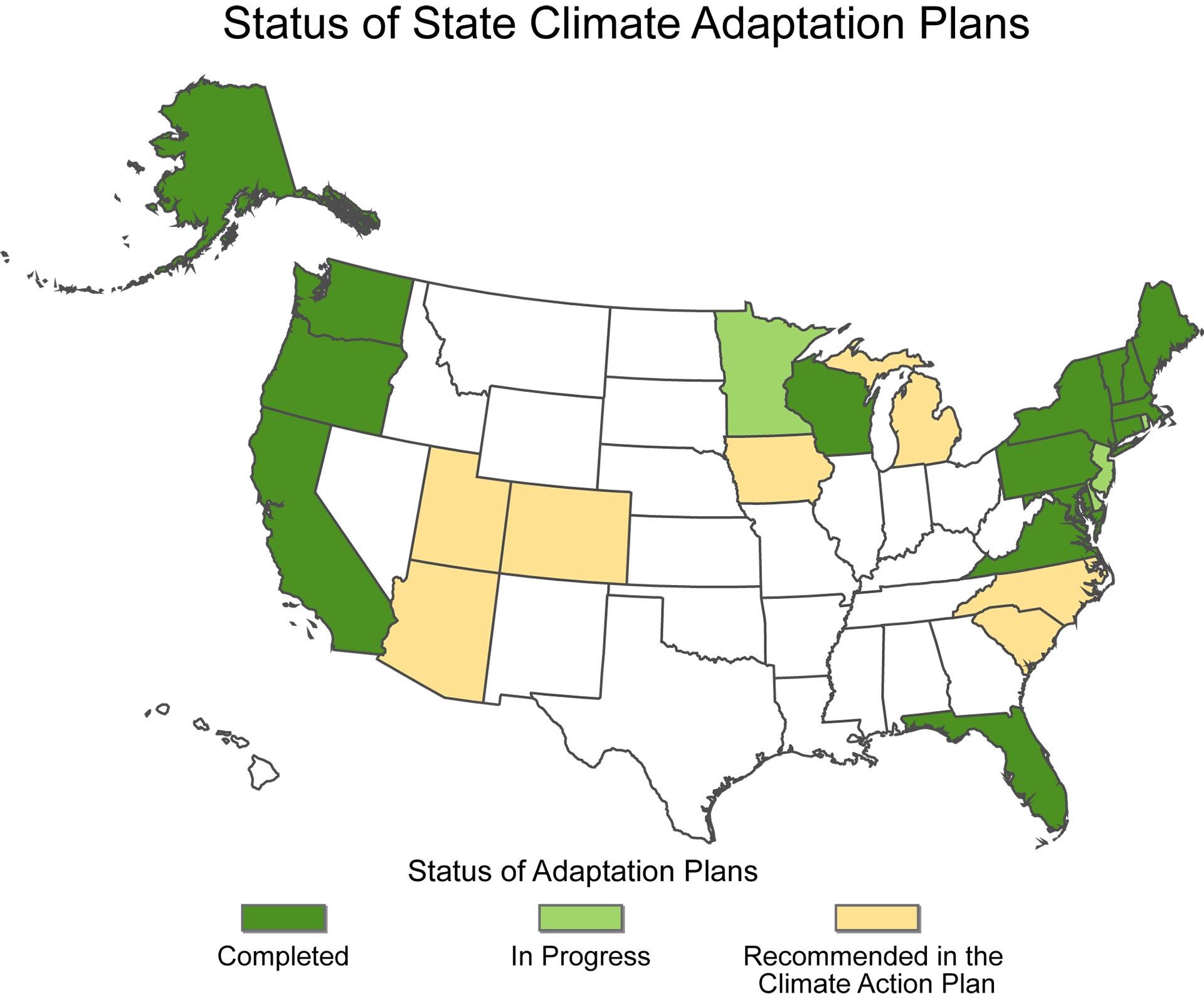The National Climate Assessment, the culmination of a four-year effort to catalog the effects of climate change on the United States, is a breath of fresh air in the national discussion of climate change.
Finally, scientists are saying it like it is, without using technical jargon or probabilities: The NCA report states bluntly that climate change has arrived in the United States, and spells out the many ways that it is making life harder - and more expensive - for many of us. That's us, not our children or grandchildren.
The report emphasises that, as we have already started to see, climate change is not about a gradual warming up of the place we call home: it's more properly called climate disruption, or even climate chaos, where wild weather events frequently dominate the news.
The report is huge. But it is not a dry document stuffed with scientific jargon, equations and graphs. It has been presented on a beautifully crafted website that is easy to navigate at several levels, from a cursory look at the key points, to the "highlights" to an in-depth look at the relevant pages of the report itself. The designer(s) of this fantastic site deserve a medal, really.
Because it is a large and diverse country, the NCA focuses on climate disruption effects on each region separately, covering everything from extreme drought and wildfires in the Southwest to hurricanes and sea level rise on the Eastern seaboard.
And because life is multi-faceted, the report spells out the implications of climate change on the many aspects of our lives, such as the energy we use to run our homes, our transportation, the food we eat and the water we drink, and the health of our families.
This assessment doesn't hold back from telling it the way it is. Even though the way it is, is actually pretty grim, and the prospects for our future even grimmer.
This is not, however, a reason to give up.
If reading about how climate change is affecting our lives makes you feel cold inside; if you start to loose sleep; if you feel deeply sad, you have a right to feel that way. Such reactions are completely normal in the face of a profound change in our home. It's reasonable to feel depression, even despair. We need to face that and work our way through it. And I'm not saying it's easy.
But this is not the time to turn away, to say, "Oh well: we blew it. And that's that." Because it's not over. The situation is pretty bad, but we can - and we must - do what we can to prevent it from turning catastrophic.
So the NCA report devotes an entire chapter to Response Strategies, in which it outlines the many ways in which we, individually, in our local communities and as a society, can fight climate change. And it points out that many of the strategies are win-win propositions: "Many of these actions can also improve public health, the economy, and quality of life."
And this is the reason I feel elated at a report that, after all, paints a dark picture of our predicament. I smell the possibility of a real shift.
For one, I don't think it's too much to say that the report is a triumph in climate communications.
Secondly, and perhaps because the material has been made so accessible, it has had wide coverage in the mainstream media that usually does such a good job of skirting the issue of global warming.
I feel this is a watershed moment. I'm cautiously optimistic that from now, the national discourse on climate change has left the embarrassing stage of the is-it-real? "debate", and will move on to the stage where we all sit down together, at the level of city, state and federal government, and say, "Okay, how shall we tackle this?"
Because, of course, we can.
Shift happens.
You may also like:
1. Let's Talk with Our Children about Global Warming
2. Slash your carbon footprint
2. How to buy a gas sipper for less



Great review of this very important issue! Glad to hear there is finally a shift happening!
ReplyDeleteThe media coverage certainly seems very different. Let us hope this change is permanent.
DeleteI'm optimistically excited too. I haven't read through it yet, but I've got a trip on Monday and hope to spend a bunch of time reading the overview or highlights which is a mere 62 pages :-)
ReplyDeleteThere is a lot there! Luckily the website makes it easy to zoom in on what interests you.
DeleteIt's unfortunate that we (society) don't have the ability to look ahead and take action before it affects us but ... I guess that's human nature. Now that it is affecting us, in a personal way, I have total confidence that we'll fight to correct the situation. Even if, as recent reports have said, we can't complete stop what's happening now, I believe we can slow it down. So yay ... it's a painful step but when it hurts, we take action. I'm with you ... cautiously elated (and optimistic)!
ReplyDeleteYes, there are hopeful signs for a change. Good thing we're waking up: There's a lot of work ahead!
Delete